Strategic pendulum. Part of 5
N.N. Golovin, comparing the operational work of the Russian command (primarily in the person of the front headquarters officer M. V. Alekseev) with similar activities of the command of the French and German armies, noted that there is “full right to put it strategically on a par with the best representatives and the French and German General Staff " [Golovin N.N. From stories 1914 campaign. Days of the Battle of the Galician Battle. C. 113.].
The battle is interesting with a series of oncoming fights and energetic maneuvers, many of which were successful for Austro-Germans. In many ways, the outcome of the operation for opponents was predetermined by the skilful operation of operational and strategic reserves. The Russian High Command was able to properly manage the reserves, forming the 9 Army, and entering it into battle on the northern flank of the battle. Focusing the 9 Army as a strategic reserve near Warsaw, the Russian Stake, after an unsuccessful turn of affairs on the South-Western Front, implemented a railway maneuver, strengthening the right flank of the 4 Army in the region of Lublin, which made it possible to overcome the negative situation on the northern flank of the Galician battle. .
Arrival on the Vistula of the German 9 Army and the flood on the river. San forced the Russians, stopping the pursuit of the Austrians, to move on to solving other strategic tasks. But, if the German command had chosen coalition interests, the strategic situation and the results of the battle of Galicia could have been different than the solution of their immediate tasks. F. Conrad von Gettsendorf stated: “According to the agreement, the Germans had to assemble east of the Lower Vistula, north of Thorn, at least 12 divisions, which were to advance through Mlava in the direction of Sedlec, while we were moving to Lublin. We have fulfilled our commitment; The Germans only collected nine divisions of the northeast of Thorn and moved them not to the southeast, but far to the northeast, to Gumbinen, where they were defeated. After that, they turned and want to attack from the Bischofsburg-Gilgenburg line, but it is already late, because while we are only one transition from Lublin, they are removed from Sedlec by ten transitions. As a result, the whole burden rests on us, and we have on the neck, east of Lviv, superior forces of the enemy ... We are not obliged to give the Germans special gratitude " [Golovin N. N. The Battle of Galicia. The first period. C. 360-361.].
What are the conclusions for this fateful battle?
The structure of the troops involved was determined by the colossal scale of the operation.
After August 10 Austrians in Galicia deployed 4 landshturmennye Brigade (1- in 1-yu, 1- in 3-2 and Armies - in Kevessa group later 2-Army), 12 marching teams (1- in 1-yu, 3 - in 4, 6 - in 3 and 2 - in 2 army), 2 drove infantry divisions (in 3 and 2 army) and 2 army corps (4 and 7) - 4 infantry divisions) - in the 2 th army. Austrian marching brigades were brought into battle as independent combat units, but did not have their own artillery.
In addition to the second-order parts and cavalry, the 18 and 3 Caucasian Army and Guards Corps, 16 and 14 Army Corps, Guards Rifle Brigade, and other units approached the Russians. The result of the gain to the time of the Gorodok battle for the Russians was the formation of the 9 Army (9 infantry divisions and 4,5 cavalry divisions) and the reinforcement of the already operating troops on the 3 division — the entire 12 infantry divisions. The gain is planned, but the use of these compounds is redistributed according to the situation.
For the Austrians, reinforcement was expressed (counting 2 brigades per division) in 10 infantry divisions (mostly unwanted and unplanned reinforcement). But what was most valuable is that the entire 2 army instead of the Serbian front hit the Russian - the allied aspect of the Battle of Galicia was expressed in the figure - 8 infantry divisions (17-I, 31-I, 32-I, 34-I, 20-I , 38-infantry, 43 landshturmennaya division, 35-I, 40-I, 102-I, 103-I landshturmennye Brigade - because of their weakness 4 team counted for the division; 2 cavalry divisions - 1-I and 5-I) drawn from the Balkan theater, and also at a crucial moment.
In the long run, the Germans were forced to reanimate an Austrian ally, strengthening their presence on the Russian front at the expense of the French. The timely support of the Austrian armies would have cost them fewer units.
Losses in a strategic-scale battle involving well-trained personnel (mostly) troops were very significant.
Losses of the Austrian troops amounted to [Feldmarchal Conrad. S. 903.]: 3 Army - up to 109, 4-I and 1 Army - on 90, 2-I army - up to 33 thousand people. Total - 322 thousand (including 100 thousand prisoners) people.
The combat strength of the Galician armies of the Twin Empire reduced by 45% - and amounted to only about 400 thousand people (in the 1 army - 125, 2 army - 100, 3 army - 70 and 4 army - 100 thousand. person [Ebd. S. 805.]).
M. Auffenberg recognized the loss of many compounds to 50% composition [Auffenberg-Komarow M. von. Aus Österreich-Ungarns Teilnahme am Weltkriege. S. 284.]. The 3 Army suffered the greatest losses, having taken the brunt of the superior army group of the Southwestern Front on the southern flank of the battle, and the troops of the northern armies 1 and 4 were heavily hit, while being transferred during the battle and parts of the 2-I army was shabby relatively weak. Only a month later, Austria-Hungary managed to restore the size of the Galician armies - bringing it to 803 thousand. [White A. Galicia battle. C. 276.].
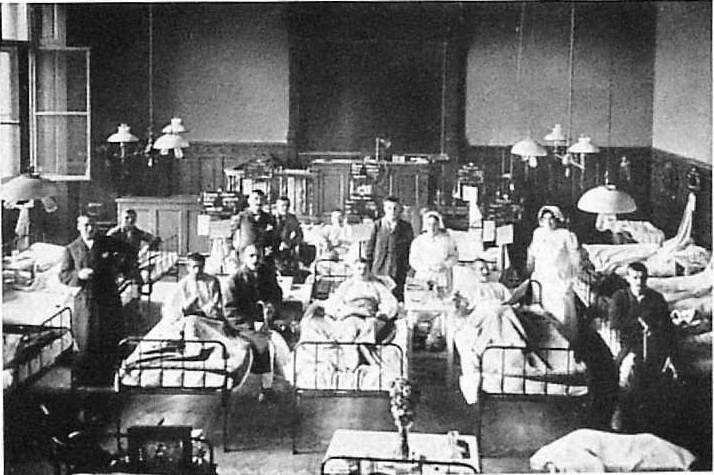
Austrian infirmary
Galician breakdown reflected on the further fate of the Austrian army, backfired during the events on the Balkan front.
Losses of the South-Western Front - 230 thousand soldiers and 94 guns (up to 40% of the group). F. Konrad Gettsendorf noted that during the battles of Komarov, Krasnik and Lvov, the Austrians captured up to 40 thousand prisoners [Feldmarchal Conrad. Op. cit. S. 768.]. The heaviest casualties fell on the shoulders of the armies of the northern flank — 4, 5, and 9. For example, the Grenadier Corps has lost up to 70% composition [White A. Galicia battle. C. 321.].
The ratio of Russian and Austrian losses shows approximately the same quality of cadre troops and the fact that the Austrian army was a formidable opponent. Such heavy losses partially explain the sluggish pursuit of Austrians by Russian troops - and the Austrian army was never destroyed.
Quartermaster General of the German Eastern Front, M. Hoffmann, describing the state of the Austrian army after the Battle of Galicia, noted the enormous losses of an ally, explaining the fact that the mass of 40 divisions could fit on the western bank of the Vislok - between the Vistula and the Carpathians. The irreparable loss from which the Austrian army was never able to recover during the entire war was the death of most of the young cadre officers and long-term noncommissioned officers. [Hoffman M. War of Opportunities. C. 37.]. E. Ludendorff also, in turn, noted the fact of the death of the color of the military officers who cemented the multinational army and the best and bravest soldiers. [Ludendorff E.S.77.].
The strategic result of the operation was important.
The strategic goal of the Russian troops was to defeat and destroy the core of the Austro-Hungarian army, which made it possible to withdraw one of the key states of the German bloc from the war. In the first part, the goal was achieved, but the second part, for objective reasons, is not. The strategic goal of the enemy’s actions is also to crush the main forces of the Russian army (that is, the troops of the Southwestern Front) and thereby create the decisive prerequisites for a victorious end to the war. The Austrian army was supposed to be the backbone of the Eastern Front, active actions to withdraw Russia from the war. But its main forces suffered a heavy defeat, she was drained of blood and began to demand regular support from the Germans. The proportion of German troops on the Russian front increased. German successes in East Prussia were leveled, and the 1914 campaign ended in favor of the Entente. The Germans actually exchanged Russian 2,5 corps in East Prussia for almost the entire Austro-Hungarian army.
The operation changed the situation not only in the south-western strategic direction, but also on the entire Russian front as a whole.
The German bloc has lost economically (oil resources) and a strategically important region - Galicia. The Russians were preparing to force the Carpathians and were located at the borders of Hungary.
The Austrians' huge mistake was the desire to act on two main fronts, in connection with which they made a fatal strategic mistake: the 2 Army was not enough in Galicia. German-Austrian strategy in 1914 was destroyed by the game on two fronts and the desire to be strong in all theaters. At the same time, F. Conrad Gettsendorf did everything in his power to win the battle. He fought hard and hard. In the course of the persecution, the Russian fortress Peremyshl was blocked and the defense along the San river was overcome. But Gettsendorf managed to competently implement the maneuver of withdrawal and consolidate the front.
The main features of the strategic art of the Russian army in this operation were: 1) effective use of the strategic reserve (its role was performed by the appropriate troops of the 2 echelon), structured in the form of the 9 army; 2) is an effective High Command railway maneuver.
Huge and moral significance of victory. This was the first turning point in the 1914 campaign.
If the victory of the British and French on the Marne dispelled the hopes of the Germans for a decisive victory in France with one blow, the Battle of Galicia buried the enemy’s hopes of holding the Russian front only with the forces of the Austro-Hungarian army and small German contingents until a decisive victory in the West.
Winston Churchill noted how France and Britain were counting on Russia - and the rapid mobilization of Russian troops and their swift onslaught on the German and Austrian fronts were necessary to save France from destruction. [Churchill W. World crisis. M. - L., 1932. C. 39.].
British statesman D. Lloyd George described the significance of the Galician victory in the light of its significance for the Anglo-French allies: “The Russians were advancing in Galicia. The central powers stopped. We could use this time to recruit and equip troops. ” [Lloyd George D. Military Memoirs. M., 1934. Tm 1-2. C. 252.].
British Foreign Minister E. Gray noted that the energy and exceptional sacrifice with which Russia, having carried out its offensive, will never be forgotten, in the autumn of 1914 saved allies [Budberg A.P.C. 8].
E. Ludendorff stated: “In Galicia, the situation was already unfavorable. The main Russian forces marched against the Austro-Hungarian armies and defeated them east of Lviv in late August. ” [Ludendorff E.S.61.]. E. von Falkenhayn explained the winding down of German operations in the East Prussian theater of operations, including the events in Galicia and Poland — the Austrian army retreated from Sanaa, and there was a serious threat to Silesia. The capture of Silesia by the Russians, even temporary, was unacceptable - Germany was losing powerful sources of power for its industry, which very soon made the continuation of the war unthinkable. The approach of the Russians to the Czech Republic was also dangerous - it could lead to internal unrest in the Dual Monarchy, which paralyzed the military power of the latter. The Balkan powers, first of all Turkey, could not stand on the side of the German bloc. [Falkengine E. von. C. 28.].
German military historian O. von Moser stated bitterly the severe defeat of the Austro-Germans in Galicia: “despite the most courageous, even desperate strategic and tactical chess moves of the Austro-Hungarian army and the deployment of reinforcements from the Danube and Sava armies, but belated. The Austro-Hungarian army was very disorganized thanks to three weeks of deadly battles ... Austro-Hungarians suffered, in addition to those killed and wounded, enormous losses by prisoners, as well as guns and other combat weapons. This failure caused the premature undermining of confidence in the high command, which was especially dangerous under the peculiar and tense internal political circumstances of a double monarchy, when the best and most fresh forces of the Austro-Hungarian army were unsuccessfully donated to the super-bold enterprise. The Russian armies persistently pursued the Austro-Hungarian army, weary and shaken in the most significant parts of their bodies, and threatened it in the middle of September with new coverage of both flanks, especially the southern. The Carpathian passes were an open gateway to the invasion of Hungary, as they were not protected by any fortifications of peacetime. ” [Moser O. von. Decree. cit. C. 38.].
Austria-Hungary in Galicia and Russia in East Prussia actually sacrificed in the interests of their coalitions, their allies. France was able to dispose of such a "gift" more skillfully.
The movement pattern of the strategic pendulum of the Galician battle looked like this.
Using the leakage of information about the strategic deployment of his Galician armies (perhaps by organizing this leakage), F. Conrad von Gettsendorf retained the deployment pattern, but carried it westwards to 100 km. And the covering maneuver of the Russian 4 and 5 armies was paralyzed by counter coverage. In fierce battles, the Austro-Hungarians managed to defeat the right flank of the Southwestern Front, throwing it east - and it is difficult to say what would have happened with these associations, if not for the talent of P. A. Plehve.
In the south, the left flank of the Southwestern Front (3 and 8) of the army on the Golden and Rotten Limes defeated the Austro-Hungarian cover (3, and then 2 of the army), occupied Lviv and began to lean north - through Rava-Ruska going out on communications of the enemy's strike force.
The commander-in-chief, Nikolai Nikolayevich, organized a railway maneuver by transferring significant forces of reserves and arriving troops to the Lublin area.
F. Conrad von Gettsendorf took a chance - by implementing a beautiful maneuver. He launched the 4 Army advancing to the northeast to the southwest, and began a concentric attack on Lviv by the forces of the 3 Army. But in the tense chaos of the Gorodok battle, the front of the southern armies of the Southwestern Front resisted, and a new offensive (after the concentration of reserves) of the northern flank forced Conrad to complete the operation.
But the Austrian army, unlike the Germans, was able to fulfill its part of the Schlieffen plan: the front in the east was preserved, and longer than for 9 weeks - as required by the German bloc.
But the Galician victory saved Serbia (the 2 Army found itself on the Russian front) - and the very fact of its existence for another year as a belligerent alongside the mighty Austria-Hungary is the most important achievement of the Russian troops. It was possible to preserve the Balkan front of the Entente, and this is a great merit of Russia. The significance of the Battle of Galicia in the context of the preservation of the Balkan Front and Serbia in the ranks of the Entente is difficult to overestimate.
It was the Battle of Galicia as the central battle of the 1914 campaign on the Russian front that helped the Russian army win the 1914 campaign and therefore the entire war.
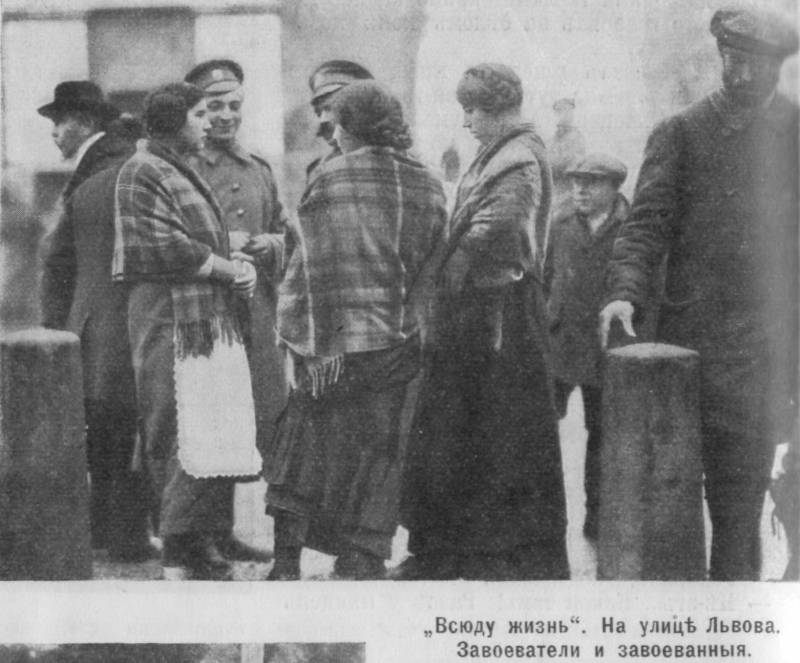
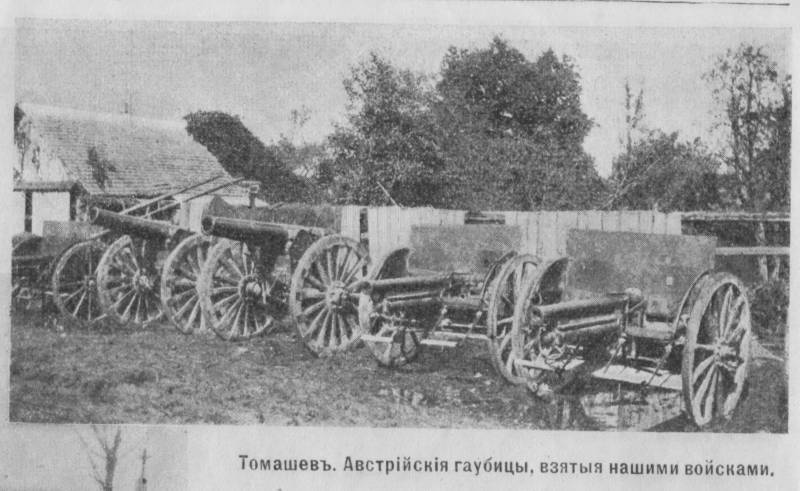
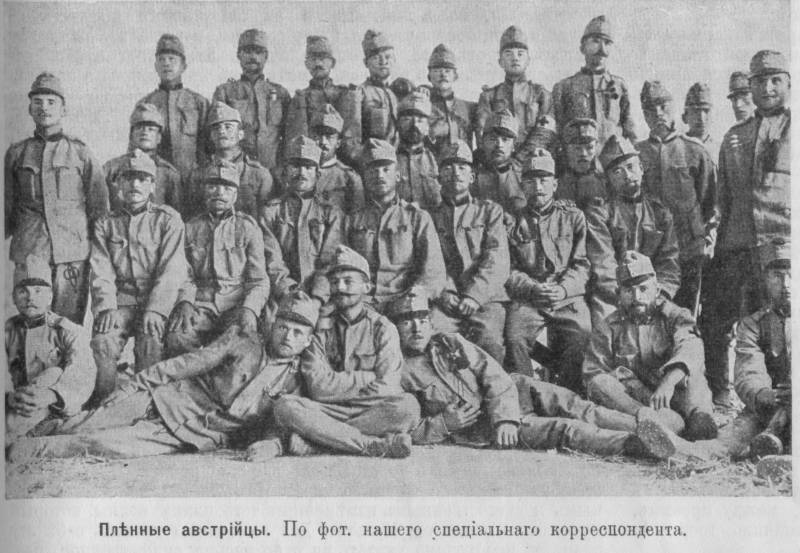
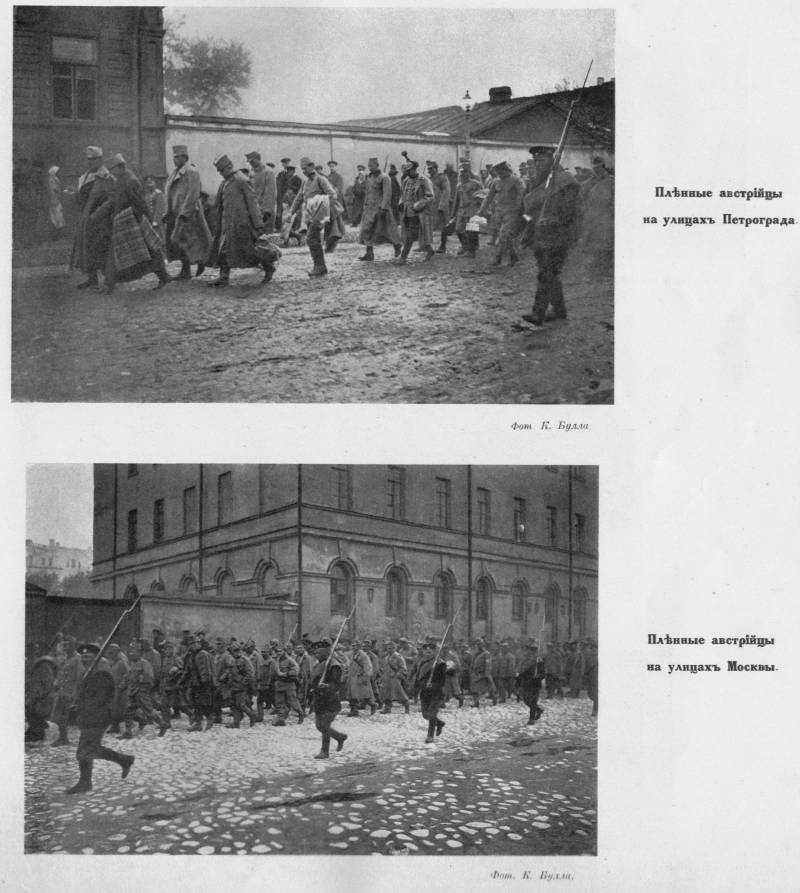
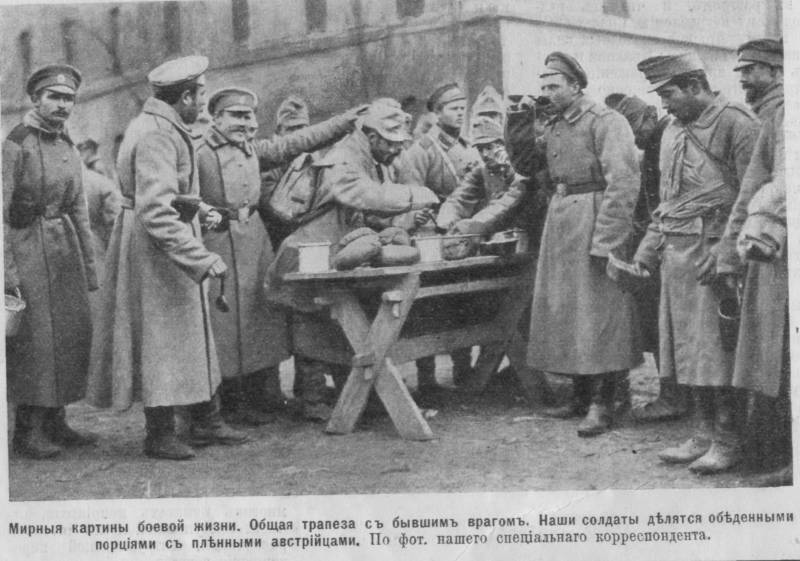
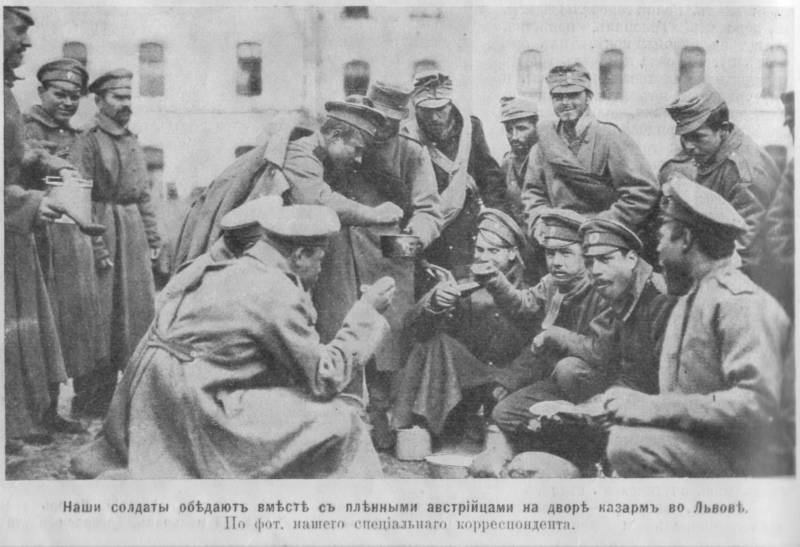
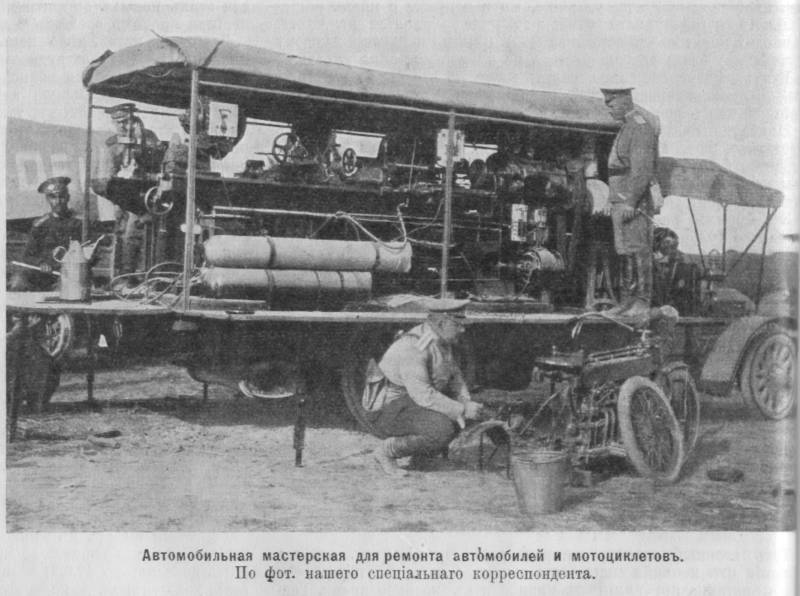
Information